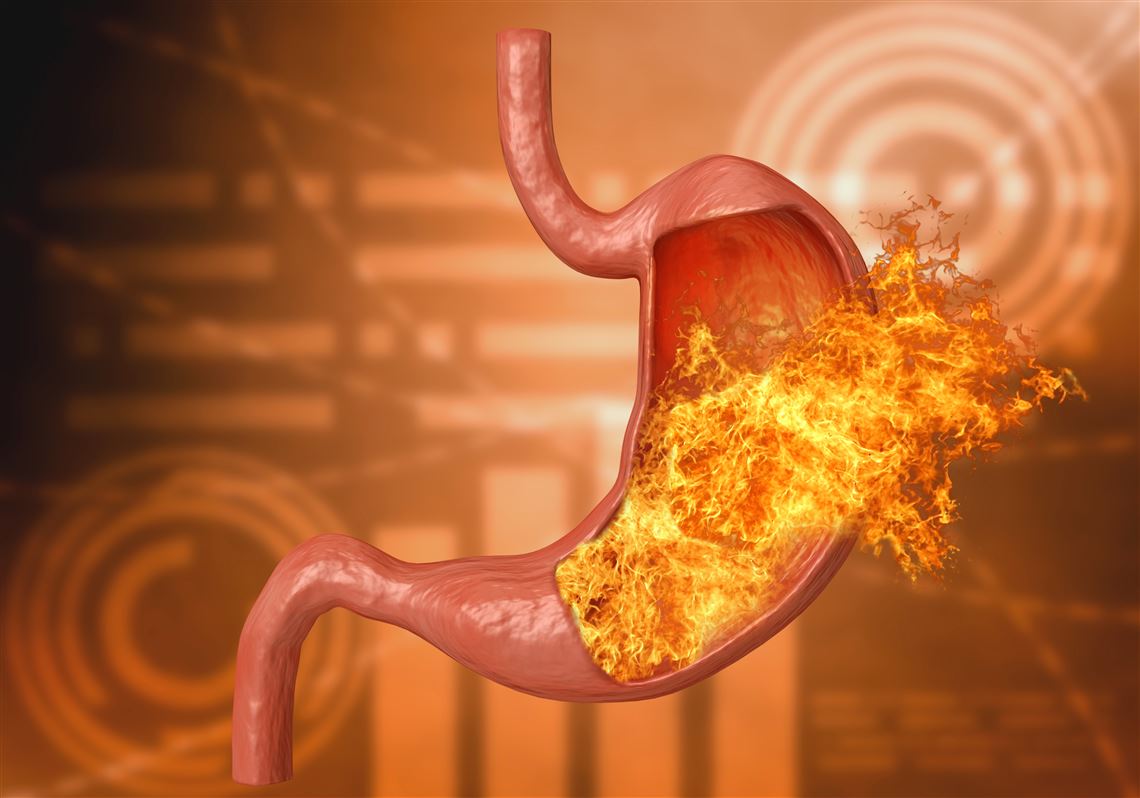Acid reflux, a common condition affecting millions worldwide, is often characterized by a burning sensation in the chest known as heartburn. While many are aware that certain foods and beverages can trigger acid reflux, there are several lesser-known factors that can also cause or exacerbate this uncomfortable condition. Understanding these surprising triggers can help individuals manage their symptoms more effectively.
1. Medications
Certain medications can contribute to acid reflux by relaxing the lower esophageal sphincter (LES), which normally prevents stomach acids from flowing back into the esophagus. Common culprits include nonsteroidal anti-inflammatory drugs (NSAIDs), such as ibuprofen, as well as some blood pressure medications, muscle relaxants, and sedatives .
2. Sleeping Position
Your sleeping position can significantly impact acid reflux symptoms. Lying flat or on your right side can allow stomach acids to more easily flow back into the esophagus. Elevating the head of your bed by about six to eight inches or sleeping on your left side can help reduce reflux during sleep .
3. Tight Clothing
Wearing tight clothing, especially around the waist, can put pressure on the abdomen and increase the likelihood of acid reflux. Garments such as tight belts, waistbands, and shapewear can compress the stomach and force its contents back up into the esophagus .
4. Smoking
Smoking is a well-known factor that can exacerbate acid reflux. Nicotine in cigarettes relaxes the LES, allowing stomach acid to escape into the esophagus. Additionally, smoking reduces saliva production, which helps neutralize stomach acid .
5. Pregnancy
Pregnancy can trigger acid reflux in several ways. Hormonal changes, particularly increased levels of progesterone, relax the LES. Additionally, the growing uterus can put pressure on the stomach, pushing its contents upward. Many pregnant women experience increased reflux symptoms, especially during the third trimester .
6. Obesity
Excess body weight can increase abdominal pressure, promoting acid reflux. Studies have shown that losing weight can significantly reduce symptoms. Maintaining a healthy weight through diet and exercise is a key strategy for managing acid reflux .
7. Stress
Stress doesn’t directly cause acid reflux, but it can lead to behaviors that trigger or worsen the condition. Stress can reduce the production of stomach acid, slowing digestion and causing stomach contents to linger longer. Additionally, stressed individuals might resort to unhealthy eating habits, such as consuming fatty or spicy foods, which can exacerbate symptoms .
Conclusion
While dietary choices are a primary focus for managing acid reflux, being aware of these surprising triggers can help sufferers better control their symptoms. Adjusting sleep positions, avoiding tight clothing, quitting smoking, managing stress, and addressing other risk factors can make a significant difference. If symptoms persist, consulting a healthcare professional is recommended to explore further treatment options.
Sources:
- "Medications and Gastroesophageal Reflux Disease (GERD)." Mayo Clinic, www.mayoclinic.org/diseases-conditions/gerd/expert-answers/gerd-medications/faq-20058445.
- Katz, P.O., et al. "Guidelines for the diagnosis and management of gastroesophageal reflux disease." American Journal of Gastroenterology, vol. 108, no. 3, 2013, pp. 308-328.
- "Sleeping Positions for GERD." Cleveland Clinic, https://my.clevelandclinic.org/health/diseases/21730-gerd/sleeping-positions/.
- "Clothing and GERD." International Foundation for Gastrointestinal Disorders, www.aboutgerd.org/living-with-gerd/clothing-and-gerd/.
- "Smoking and Heartburn." Healthline, www.healthline.com/health/smoking-and-heartburn.
- Richter, J.E. "Gastroesophageal reflux disease during pregnancy." Gastroenterology Clinics of North America, vol. 32, no. 1, 2003, pp. 235-261.
- El-Serag, H.B., et al. "Obesity increases oesophageal acid exposure." Gut, vol. 56, no. 6, 2007, pp. 749-755.
- "Stress and Acid Reflux." Harvard Health Publishing, www.health.harvard.edu/diseases-and-conditions/stress-and-acid-reflux.
